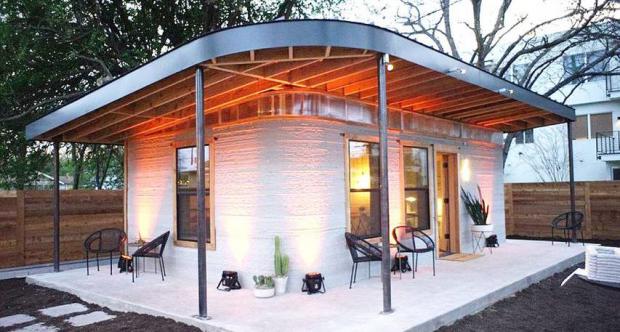
Breaking News
 Regenerative Farming Just Went Mainstream; Here's Why It Matters
Regenerative Farming Just Went Mainstream; Here's Why It Matters
 Holy SH*T! Israel just admitted it!
Holy SH*T! Israel just admitted it!
 It's Official: Ditching The SATs Was A Big Mistake
It's Official: Ditching The SATs Was A Big Mistake
 High Level Hamas Planner Of Oct.7 Assassinated By IDF Strike In Gaza City
High Level Hamas Planner Of Oct.7 Assassinated By IDF Strike In Gaza City
Top Tech News
 This tiny dev board is packed with features for ambitious makers
This tiny dev board is packed with features for ambitious makers
 Scientists Discover Gel to Regrow Tooth Enamel
Scientists Discover Gel to Regrow Tooth Enamel
 Vitamin C and Dandelion Root Killing Cancer Cells -- as Former CDC Director Calls for COVID-19...
Vitamin C and Dandelion Root Killing Cancer Cells -- as Former CDC Director Calls for COVID-19...
 Galactic Brain: US firm plans space-based data centers, power grid to challenge China
Galactic Brain: US firm plans space-based data centers, power grid to challenge China
 A microbial cleanup for glyphosate just earned a patent. Here's why that matters
A microbial cleanup for glyphosate just earned a patent. Here's why that matters
 Japan Breaks Internet Speed Record with 5 Million Times Faster Data Transfer
Japan Breaks Internet Speed Record with 5 Million Times Faster Data Transfer
 Advanced Propulsion Resources Part 1 of 2
Advanced Propulsion Resources Part 1 of 2
 PulsarFusion a forward-thinking UK aerospace company, is pushing the boundaries of space travel...
PulsarFusion a forward-thinking UK aerospace company, is pushing the boundaries of space travel...
 Dinky little laser box throws big-screen entertainment from inches away
Dinky little laser box throws big-screen entertainment from inches away
 'World's first' sodium-ion flashlight shines bright even at -40 ºF
'World's first' sodium-ion flashlight shines bright even at -40 ºF
How 3D Printing is Revolutionizing the Housing

The housing industry is like a roller coaster.
The housing crash left houses empty and people homeless. Some neighborhoods are still littered with empty and decaying homes, some having stood empty going on 10 years now.
By this point, a lot of these homes aren't even worth repairing. Since the crash, there has been a lot of conversation, and demand, for more housing options.
And why not? Engineers have discovered cheaper, more eco-friendly and sustainable housing options. Why not use them?
Current homes were built between 40 and 100 years ago. They now show signs of wood rot, weakening foundation, insect infestations, and mold. And without modern insulation and windows, residents shoulder high power and heating costs.
These problems will only get worse as time goes on. But what's going to replace them?
Will people build more of the same, or start building smarter?
New Era of Housing
If you imagine a "Jetsons" style future, you may be disappointed. Likely most structures will resemble current styles, but with hidden improvements in the materials and design.
When the market demands something new, the industry will eventually abide.
Alternatives to traditional homes are already popping up. And surprisingly, a lot of these options are significantly cheaper than current construction methods. Plus, many of these homes continue to save you money in efficiency in the long term.



